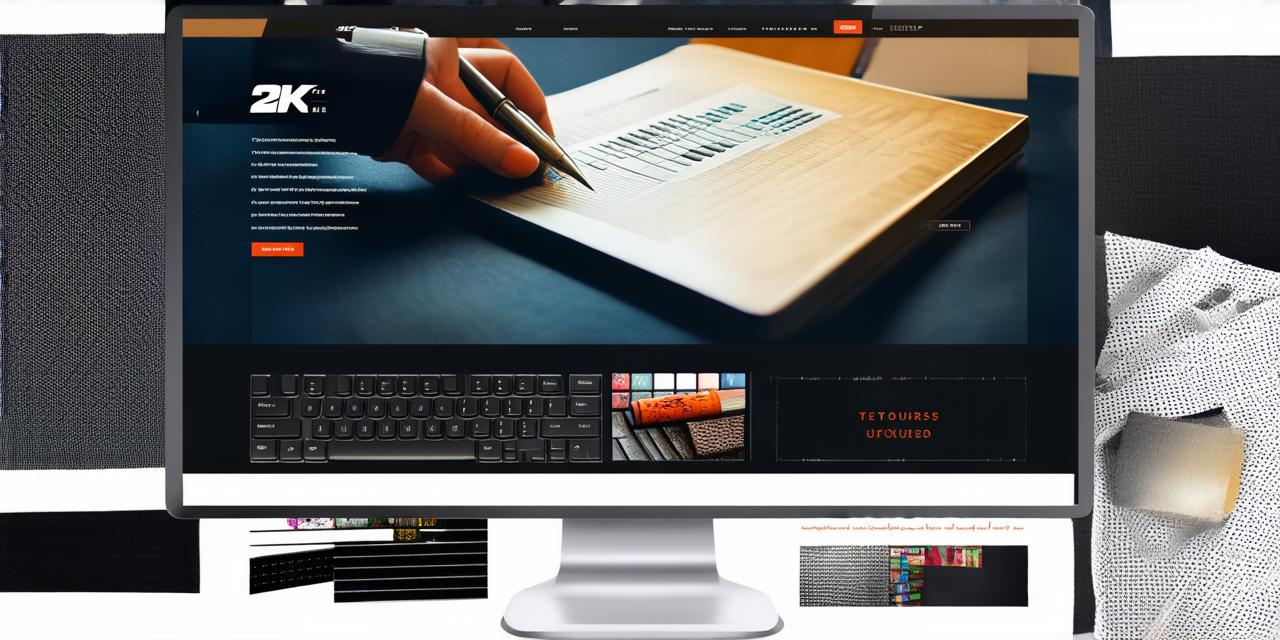Effective strategies for learning web designing
BlogWeb design is an essential aspect of creating any website that can attract and retain visitors. It involves the use of various tools, techniques, and technologies to create visually appealing and functional websites. While there are many resources available online for learning web design, it can be challenging to find strategies that work for everyone. In this article, we will explore some effective strategies for learning web design that you can implement in your own journey.
1. Start with the basics
Before diving into more advanced topics, it’s important to start with the fundamentals of web design. This includes understanding the different elements that make up a website, such as HTML, CSS, and JavaScript. You should also learn about various design principles, such as color theory, typography, and layout. By starting with the basics, you will be able to build a strong foundation for your web design knowledge and skills.
2. Choose the right tools and software
There are many tools and software available for web design, but not all of them are created equal. Some popular options include Adobe Photoshop, Sketch, Figma, and InVision. These tools offer a wide range of features and capabilities, so it’s important to choose the one that best suits your needs. You should also consider your budget and experience level when selecting a tool or software.
3. Practice, practice, practice
Web design is a skill that requires practice to master. One of the best ways to improve your skills is by creating projects and working on real-life websites. This can be challenging at first, but it will help you develop a better understanding of web design principles and techniques. You should also try to collaborate with other designers or developers to get feedback on your work and learn from their experiences.
4. Stay up-to-date with the latest trends and technologies
Web design is an ever-evolving field, with new trends and technologies emerging all the time. It’s important to stay up-to-date with these changes to ensure that your web designs remain relevant and modern. This can be done by attending conferences, reading industry publications, and following designers and developers on social media.
5. Seek feedback and constructive criticism
Getting feedback on your work is essential for improving your web design skills. You should seek feedback from other designers, developers, or users to get an objective perspective on your work. Constructive criticism can help you identify areas where you need to improve and develop new strategies for addressing these issues.
6. Join online communities and forums
Online communities and forums are a great way to connect with other web designers and learn from their experiences. These communities offer a wealth of knowledge and resources, as well as opportunities to collaborate on projects and share your work. Some popular online communities include Reddit’s r/webdesign subreddit, the Web Design Stack Exchange, and the UX Collective.
7. Attend workshops and courses
Workshops and courses are an excellent way to learn web design from experienced professionals. These events offer hands-on training and opportunities to network with other designers and developers. Some popular options include Adobe MAX, Smashing Magazine’s SmashCon, and the UX Mastery Conference.
8. Take on freelance projects
Taking on freelance projects can be a great way to gain experience and develop your web design skills. You can find freelance work through various platforms, such as Upwork, Fiverr, or Freelancer. This will give you the opportunity to work on real-life projects and get feedback from clients, which can help you improve your skills and build a portfolio of work.
9. Participate in coding challenges and hackathons
Coding challenges and hackathons are a great way to test your web design skills and compete with other designers. These events offer a chance to showcase your creativity and problem-solving abilities while learning from others in the industry. You can also network with other participants and potentially gain new clients or job opportunities.
10. Develop a personal brand
Developing a personal brand is an important part of becoming a successful web designer. Your personal brand should reflect your personality, values, and unique skills and expertise. This can include creating a website or social media presence that showcases your work, writing blog posts or articles, or speaking at conferences or events. By developing a strong personal brand, you can differentiate yourself from other designers in the industry and attract more clients.
Summary
Web design is an essential aspect of creating any website that can attract and retain visitors. Learning web design requires practice, dedication, and a willingness to learn from others. By following these strategies, you can develop the skills and knowledge needed to become a successful web designer. Remember to start with the basics, choose the right tools and software, practice, stay up-to-date with the latest trends and technologies, seek feedback and constructive criticism, join online communities and forums, attend workshops and courses, take on freelance projects, participate in coding challenges and hackathons, and develop a personal brand. With these strategies in place, you can become an effective web designer and create websites that stand out from the rest.
